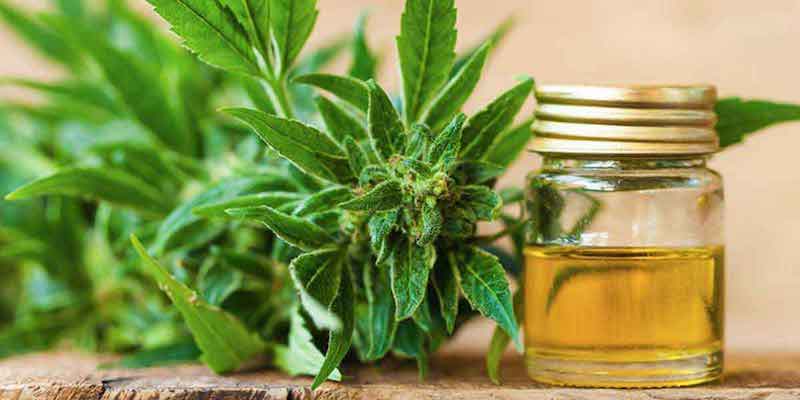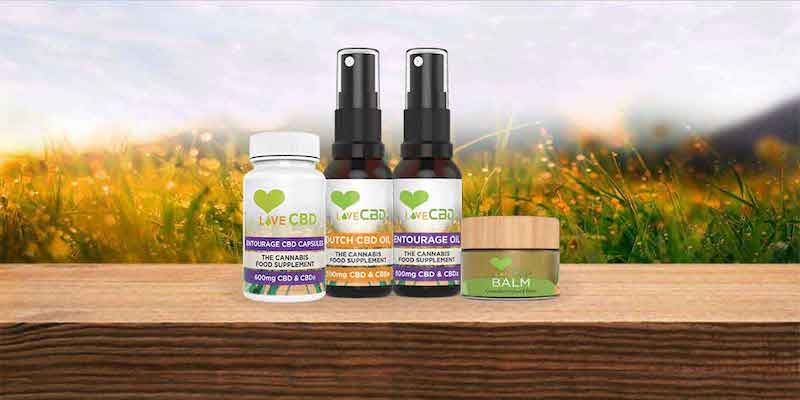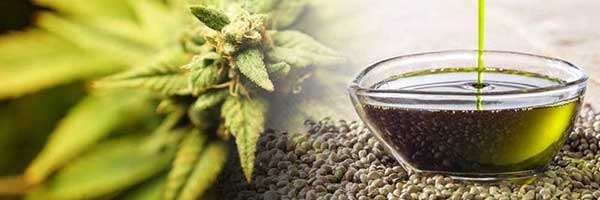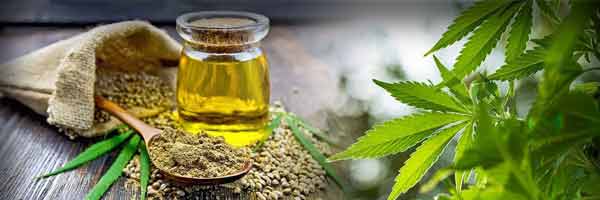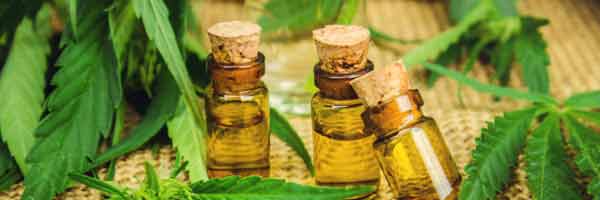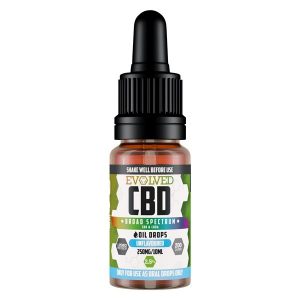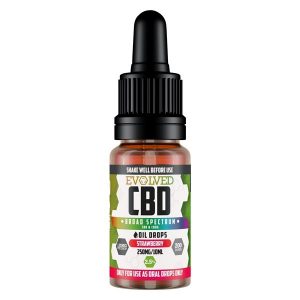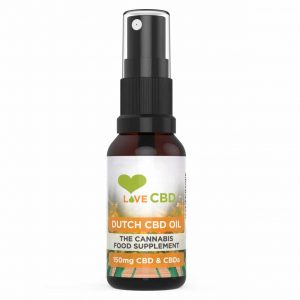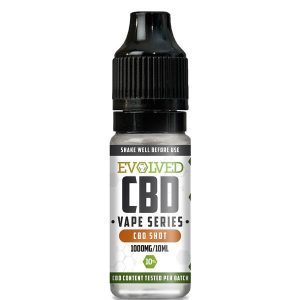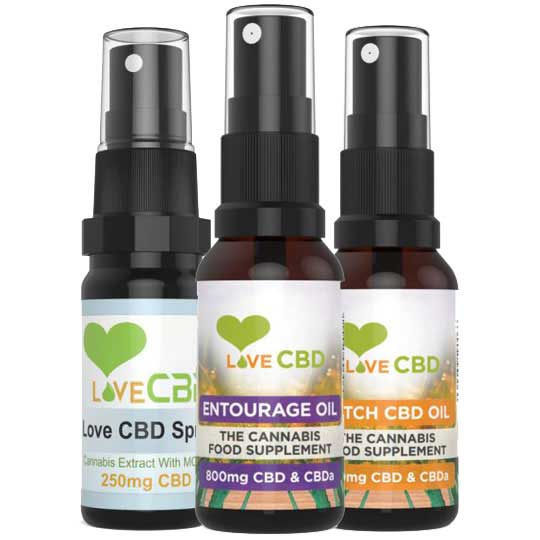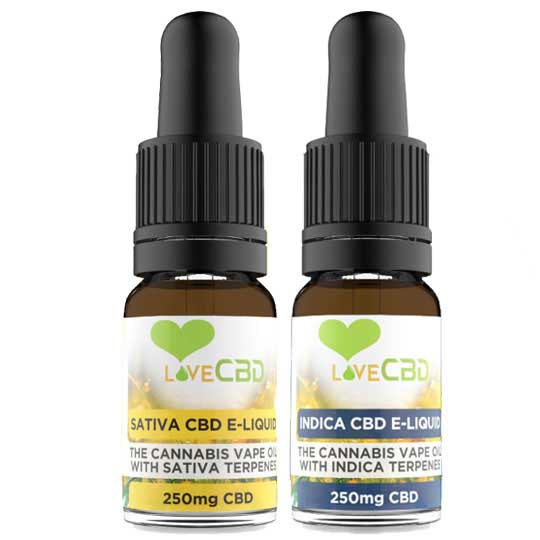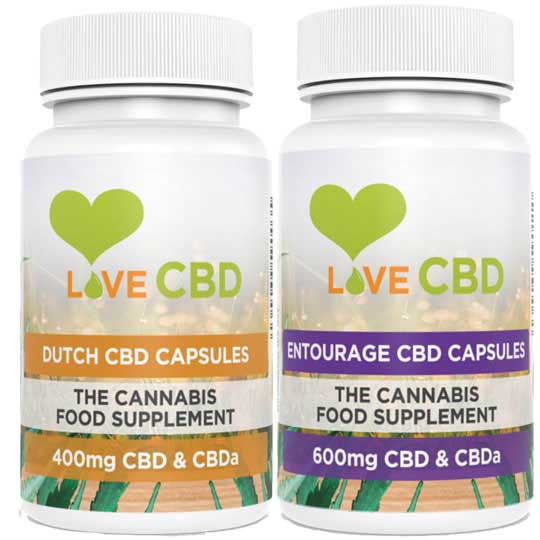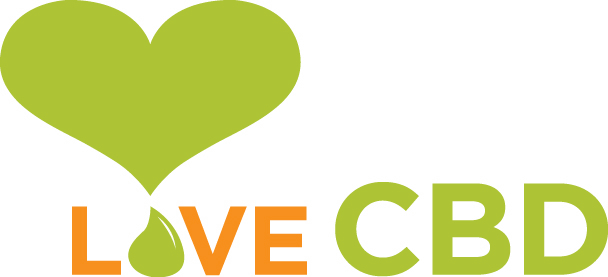If you’ve been following the news recently, you’ve undoubtedly heard about the massive rise in the number of people using CBD oil.
According to recent data, an estimated 300,000 people in the UK now buy CBD oil on a regular basis. Reports also indicate that the global market for CBD products is estimated to grow to up to 700% its current size by 2020, with an estimated value of $2.1 billion.
So, what exactly is CBD oil? CBD, or cannabidiol, is a non-psychoactive phytocannabinoid that is sourced from the hemp plant. Unlike its well-known counterpart tetrahydrocannabinol (THC), inhaling CBD does not cause you to feel high.
Instead, CBD is believed to offer a range of health and wellbeing benefits, many of which are supported by an increasing amount of scientific evidence.
CBD oil is made by extracting CBD directly from the hemp plant. It’s commonly sold as an oral tincture, as a food or beverage additive, as e-liquid for use in a vaporiser, and even in a variety of other forms.
Below, we’ve explained what CBD oil is in more detail, as well as how it’s commonly used as a treatment for a variety of ailments. We’ve also looked at the most popular forms of CBD oil that are available today, from oral CBD tinctures to vape oil, capsules and more.
The Basics of CBD Oil and Cannabidiol
As you’d expect from its name, CBD oil is an oil that contains cannabidiol, or CBD. It’s made by extracting the cannabidiol directly from the hemp plant, then processing it into a usable oil with a specific CBD content.
In general, you’ll find two different types of CBD oil on the market:
-
Whole plant, or “full spectrum” extract. This extraction method produces an oil that contains CBD and a range of other cannabinoids. “Full spectrum” CBD oil also contains cannabis terpenes, which may give the oil certain anti-inflammatory properties.
Because full spectrum CBD contains terpenes in addition to cannabidiol, it’s often seen as a more effective form of CBD for treating inflammation. Full spectrum CBD products often contain traces of THC, although the total THC content is extremely low. -
CBD isolate. Oils labelled as CBD isolate only contain CBD, with no other cannabinoids or terpenes. CBD isolate products also contain absolutely no THC (most will have a “0% THC” note somewhere on their packaging).
Because this type of CBD oil doesn’t contain any of the naturally-occurring terpenes that are present in the hemp plant, it’s less popular than full spectrum CBD. As it contains no THC, CBD isolate oil is ideal if you’re concerned about THC-based drug testing.
Several different methods are used to extract CBD from the hemp plant. The most common of these is ethanol extraction, which involves the use of an ethanol-based solvent to extract CBD from the hemp plant.
Some CBD oil producers use a more modern fluid CO2 extraction method to isolate and extract CBD from the hemp plant. This is generally the preferred method for producing high quality CBD oil. You’ll often find CO2 extraction listed as a feature of high-end, more costly CBD products.
What is CBD Oil Used For?
Although research into CBD is still in its early stages, the data that’s currently available tends to show that CBD may have a range of interesting and unique health benefits.
CBD is linked to a range of pain relief effects, making it a potentially useful natural treatment for a variety of forms of chronic pain. It’s also believed to have positive effects for people who suffer from anxiety, depression and other psychological conditions.
Beyond this, CBD is linked to improvements in sleep and is widely used as a natural treatment for insomnia. It’s also being studied as a treatment for everything from cardiovascular health to acne, body composition, substance abuse recovery and more.
If you’re interested in learning more about the potential health benefits of CBD, be sure to read our detailed guide to the benefits of CBD oil.
Is CBD Oil Legal?
While recreational cannabis is illegal in the UK, CBD is legal to manufacture and sell as long as it complies with current regulations.
CBD doesn’t contain THC, the psychoactive cannabinoid that causes you to feel high after using cannabis. THC, as well as numerous other cannabinoids, are strictly controlled in the UK via the Misuse of Drugs Act 1971 and the Misuse of Drug Regulations Act 2001.
However, CBD is not listed as a controlled substance under the Misuse of Drugs Act. As long as a CBD product is produced using a strain of hemp that’s approved by the EU, it’s legal for you to purchase and use it in the UK.
Any CBD oil sold in the UK also needs to have a THC content of 0.2% or less. Oils that contain CBD but also have a higher THC content, such as some forms of cannabis oil, can’t legally be manufactured or sold in the UK.
Simply put, as long as a CBD oil product is free of THC, or only contains a tiny amount of THC that’s within the 0.2% limit, it’s legal in the UK. For more information on CBD’s legal status and how it differs from illegal cannabis, be sure to read our guide to CBD laws in the UK.
What Forms of CBD Oil Are Available?
CBD oil is available in several different forms, from oral tinctures to capsules, vape oils, edible products and more. We stock a wide variety of high quality, natural CBD products in our shop, including:
- CBD Oil Tinctures. The most popular form of CBD oil, tinctures or drops are designed for use directly under your tongue. Sold in a variety of different strengths, tinctures are a great option if you prefer to ingest CBD orally without the use of a vaporiser.
- CBD Vape Oil. Designed for use with a vaporiser, CBD vape oil, or e-liquid, allows you to consume CBD in vapour form. This is the fastest, most effective way to deliver CBD into your body, allowing you to enjoy its effects without any slow absorption process.
- CBD Vape Additives. Unlike CBD vape oil, CBD vape additives aren’t designed for use on their own. Instead, they contain concentrated CBD and are designed to be added to an existing flavoured e-liquid.
- Edible CBD Products. Edible CBD products, such as gummies, honey sticks, blended tea bags, dark chocolate bites and other products allow you to consume CBD in a wide range of edible forms, often accompanied by a variety of pleasant flavours.
- CBD Balms. Designed to deliver CBD topically through the skin, CBD balms contain a mix of soothing ingredients infused with CBD. Balms typically contain a smaller amount of CBD than oil tinctures, vape oils and other products designed for oral use.
- CBD Bath Additives. Designed for use in your bath water, CBD bath additives allow you to absorb CBD through your skin as you bathe. Similar to balms, most CBD bath additives only contain a relatively low dose of CBD.
- Other CBD Products. CBD oil is also used in a range of other products, from crystals and waxes to honey sticks and more. You can view many of these products in our CBD shop.
Of these products, there’s no “best” way to consume CBD. From CBD tinctures to edibles, bath additives and more, each type of CBD product offers its own range of advantages, allowing you to tailor your usage method based on your tastes, needs and lifestyle.
CBD vs. THC: What’s the Difference?
Cannabidiol, or CBD, and tetrahydrocannabinol, or THC, are commonly viewed as similar. After all, they’re both extracts of the cannabis plant and they have, at least superficially, quite similar sounding names.
However, this is where the similarities end. CBD and THC target different cannabinoid receptors within the body, producing very different effects. We’ve listed these effects, as well as other key differences between these two compounds, below:
-
THC is psychoactive, while CBD isn’t. THC is the ingredient in cannabis that causes the “high” effect. When you consume cannabis that contains THC, you’ll feel an altered sense of sight, hearing and smell, as well as a variety of other effects.
CBD, on the other hand, is not psychoactive. While it may help to reduce some feelings of pain, discomfort and anxiety, it doesn’t cause the high that THC does, meaning your senses won’t be altered in a noticeable way. -
THC is not legal in the UK, while CBD is. CBD is legal to purchase and consume both in the UK and throughout the European Union. It’s no longer listed under the Controlled Substances Act and isn’t a controlled substance.
THC, on the other hand, is prohibited in the UK under the Controlled Substances Act. It’s a controlled substance and an illegal drug. If you possess substances that contain THC in the UK, you risk being criminally prosecuted. -
THC activates certain cannabinoid receptors, while CBD inhibits them. Not only are THC and CBD different compounds, but they affect the cannabinoid receptors within the body in vastly different ways.
While THC is known to activate the CB1 and CB2 receptors, CBD typically reduces the effects of these receptors. This is one reason why THC can cause psychoactive effects, while CBD has no noticeable effects on your perception.
In short, CBD is a cannabinoid that can treat pain, anxiety and a range of other conditions. It is not an illegal substance that causes you to feel high. It’s legal to purchase and to use in the UK and other countries within the European Union.
THC, on the other hand, will cause you to feel high and is not legal in the UK. THC is not legal to purchase or possess, and you risk being prosecuted if you’re found to possess any products that contain THC in the UK and many other countries.
Learn More About CBD
Interested in learning more about CBD? From its potential as a natural pain reliever to its links to improvements in anxiety and other health conditions, CBD is a promising treatment that has attracted a huge amount of interest from researchers.
Our CBD news section contains more information on CBD, from its uses to the latest research into CBD as a natural health treatment.
Shop Online for CBD Oil and Other CBD Products
Interested in getting started with CBD oil? From oil tinctures to edibles and more, we’ve got you covered. Check out our selection of high quality CBD products online and enjoy free UK delivery on all orders of £25 or more.

